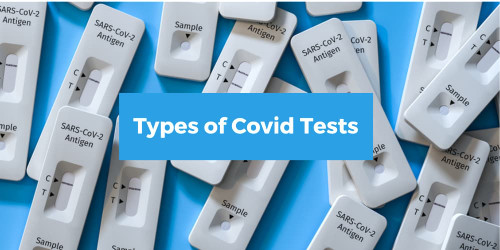There’s nothing quite like crawling into bed, wrapping up in your blankets, and nestling your head into your pillow. But before you get too comfortable, you might want to know that your bed isn’t all that dissimilar to a petri dish.
Your body produce 26+ gallons of sweat in bed per year and sheds 30-40,000 dead skin cells every day. The combination of sweat, saliva, dandruff, dead skin cells and even food particles make it the optimal environment for a whole host of germs such as bacteria, fungi, viruses, and even tiny bugs to grow.
A study in 2022 saw volunteers swabbing their sheets over four weeks. In just four weeks, a pillowcase was found to have 39 times as much bacteria as a pet bowl, whilst sheets have 5.4 times more bacteria than a toothbrush holder.
What’s In Your Unwashed Bed Sheets That Can Potentially Make You Sick?
While not changing your bedsheets, even with a few stains, may seem harmless, it is anything but that. If your bedsheet is unwashed for over two weeks, you have already invited several health hazards into your bedroom.
Your immune system could be in a pillow fight with harmful bacteria and dust mites, increasing your risk of infection, allergies and skin irritation. Here are just a few of the things that lurk beneath our covers.
1. Bacteria, Fungi and Viruses
Bacteria thrive in the warm, moist environment of your bedsheet, especially when fed by sweat, saliva, and dead skin cells. Common bacteria like Staphylococcus aureus and Escherichia coli can multiply rapidly in these conditions, potentially leading to skin infections or respiratory issues if inhaled.
Fungi, such as molds and yeasts, flourish in damp areas, fueled by sweat and moisture from the environment. Species like Aspergillus and Candida can colonize your sheets, contributing to fungal infections or exacerbating allergies.
Viruses, like the common cold or flu viruses, can persist on surfaces, including bedsheets, especially if contaminated by respiratory droplets from coughing or sneezing. Failure to wash hands properly after contact with pets or before bed can transfer viruses like rhinovirus or influenza virus onto sheets, increasing the risk of infection.
2. Bugs
Dead skin cells shed from our bodies accumulate on bed sheets, providing a food source for bacteria and dust mites. These microorganisms can proliferate rapidly, leading to an increase in allergens and potentially causing skin irritation, itchiness, or exacerbating conditions like eczema.
If you allow pets on your bed, their fur can carry allergens, dander, and even parasites like fleas. Fleas can lay eggs in your bedding, leading to infestations. This can result in allergic reactions, itching, and discomfort.
While pet fleas typically prefer animal hosts, they can bite humans and cause discomfort. Fleas can transmit diseases like Bartonella (cat scratch fever) and tapeworm infections. However, direct transmission of pet fleas to humans is uncommon, and most diseases they carry require specific conditions or vectors for transmission. Regular pet grooming and flea prevention can minimize the risk of infestation.
3. Household germs
Household germs can get into your bed sheets through direct contact with contaminated surfaces, such as unwashed hands or clothing. For example, bacteria like Staphylococcus aureus, commonly found on skin, can transfer to sheets and potentially cause skin infections like cellulitis.
Additionally, germs can be transmitted via airborne particles, settling onto bedding surfaces. Respiratory viruses like the flu virus can linger in the air and land on sheets, potentially leading to respiratory infections if inhaled.
Lastly, pets can carry germs on their fur and paws, which can transfer to bed sheets when they climb onto the bed. This can introduce pathogens such as Salmonella or Campylobacter, leading to gastrointestinal infections if ingested accidentally.
What else is in bed with you?
1.Beauty Products
Beauty products left on bed sheets can accumulate bacteria and fungi, potentially leading to skin infections or exacerbating allergies. For example, mascara residue can harbor bacteria like staphylococcus aureus, which can cause eye infections or skin irritation.
2. Food crumbs
Food crumbs left on bed sheets can attract pests like dust mites, which can trigger allergic reactions or worsen asthma symptoms in susceptible individuals. For instance, inhaling dust mite feces can lead to respiratory issues such as coughing, wheezing, or difficulty breathing.















